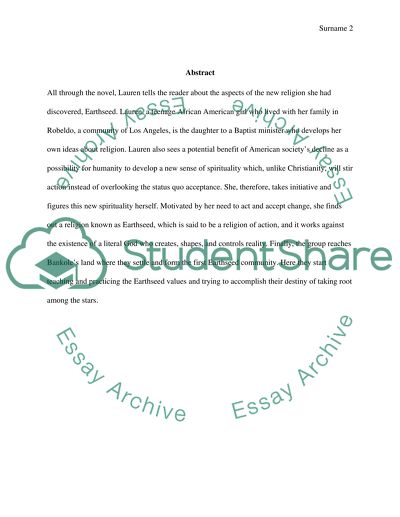Cite this document
(“English Literature Religion in the Parable of the Sower by Octavia Essay”, n.d.)
Retrieved de https://studentshare.org/english/1462252-english-literature
Retrieved de https://studentshare.org/english/1462252-english-literature
(English Literature Religion in the Parable of the Sower by Octavia Essay)
https://studentshare.org/english/1462252-english-literature.
https://studentshare.org/english/1462252-english-literature.
“English Literature Religion in the Parable of the Sower by Octavia Essay”, n.d. https://studentshare.org/english/1462252-english-literature.


